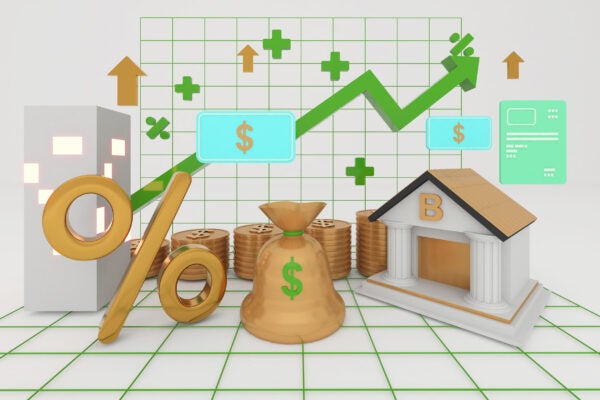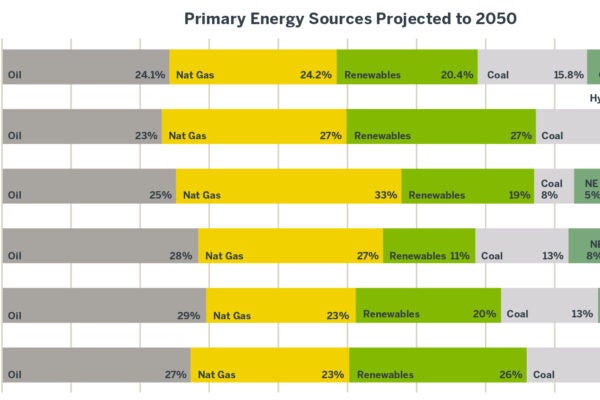Standards Boost Sustainability Talk
Voluntary reporting guides lead to more sustainability disclosures in corporate earnings calls
Based on the research of Jeffrey Hales

What They Studied
How reliable are corporate reports on their sustainability efforts? In 2024, according to KPMG, 96% of the world’s 250 largest companies did some form of sustainability reporting, but investors often are skeptical of those reports. A 2024 Ernst & Young survey found that 85% expressed concern about greenwashing, which is making deceptive sustainability claims. Jeffrey Hales, professor of accounting and executive director of the Global Sustainability Leadership Institute at Texas McCombs, and co-authors Khrystyna Bochkay of the University of Miami and George Serafeim of Harvard University analyzed quarterly earnings calls for 2,915 companies over 13 years, before and after the release of voluntary reporting standards.
What They Found
On average, they saw a 21% increase in sustainability discussions after standards were released. The standards were developed industry by industry from 2012 to 2016, giving researchers time to analyze disclosure practices in the 77 industries they studied. They found that besides boosting sustainability discussions overall, the companies that talked the least about sustainability before standards showed the greatest increases afterward. In addition, standards appeared to improve not only information volume but also content.
Why It Matters
“We find that sustainability-related conversations become more focused on the financially material sustainability issues,” Hales says. By helping investors and executives focus on relevant issues and by providing a shared framework for doing it, Hales says he hopes the standards will reduce investor skepticism about greenwashing. He also hopes it will encourage them to ask better questions, such as how a company’s prospects might be affected by such forces as human capital management or cybersecurity.

More and more, investors want to know what companies are doing about sustainability: for example, how a company’s operations depend on natural resources or how it manages its human capital. In 2024, according to KPMG, 96% of the world’s 250 largest companies did some form of sustainability reporting.
But investors don’t always trust what companies are telling them. In a 2024 Ernst & Young survey, 85% expressed concern about greenwashing: making deceptive sustainability claims.
One way to bridge that trust gap might be voluntary reporting standards, says Jeffrey Hales, professor of accounting and executive director of the Global Sustainability Leadership Institute at Texas McCombs. In new research, he finds that companies talk more to investors about sustainability — and focus more on material matters — once such standards have been established.
With Khrystyna Bochkay of the University of Miami and George Serafeim of Harvard University, Hales analyzed quarterly earnings calls for 2,915 companies over 13 years, before and after the release of voluntary reporting standards across 77 industries. On average, they found a 21% increase in sustainability discussions after standards were released.
“It’s helpful when conference calls cover the topics that are of interest to investors,” Hales says. “By developing standards that help to identify which sustainability matters are of particular interest in different industries, it’s easier for those topics to bubble up to the level of conference calls.”
Giving Them Something To Talk About
Organizations such as the Financial Accounting Standards Board have long set standards for how companies present financial reports. Beginning in 2012, the Sustainability Accounting Standards Board (SASB) did the same for reporting on sustainability. Today, SASB standards are overseen by the International Sustainability Standards Board (ISSB), of which Hales is a member.
The standards were developed industry by industry from 2012 to 2016. The staggered introductions allowed researchers to analyze the effects of standards on disclosure practices in each of those industries.
Besides boosting sustainability discussions overall, the standards had other noteworthy impacts.
- Companies that talked the least about sustainability prior to standards showed the greatest increases afterward: 58%, compared with 8% for companies that were already telling investors about these issues.
- Standards appeared to improve not only the volume of information, but also its content, by emphasizing topics that are material for a given industry.
For example, investors might not get much out of a generic statement about greenhouse gas emissions from an automaker. They would probably benefit more from hearing whether and how evolving regulations and consumer preferences shape the types of vehicles a company is planning to sell in various markets.
“After the SASB standards were developed, we find that sustainability-related conversations become more focused on the financially material sustainability issues,” Hales says.
By helping both investors and executives focus on relevant issues, and giving them a shared framework for doing it, Hales says he hopes the standards will reduce investor skepticism about greenwashing.
He also hopes it will encourage them to ask better questions, such as how a company’s prospects might be affected by forces like the environment, human capital management, or cybersecurity.
“Investors should definitely be asking those questions,” he says. “I just hope that when they are assessing corporate performance, they’re not only thinking about next quarter’s earnings.
“I hope they’re thinking about the short-, medium-, and long-term prospects of the company, and really thinking about major strategic issues that companies need to manage well and be prepared for, as the world changes.”
“Disclosure Standards and Communication Norms: Evidence of Voluntary Sustainability Standards as a Coordinating Device for Capital Markets” is published in Review of Accounting Studies.
Story by Suzi Morales
About this Post
Share:


